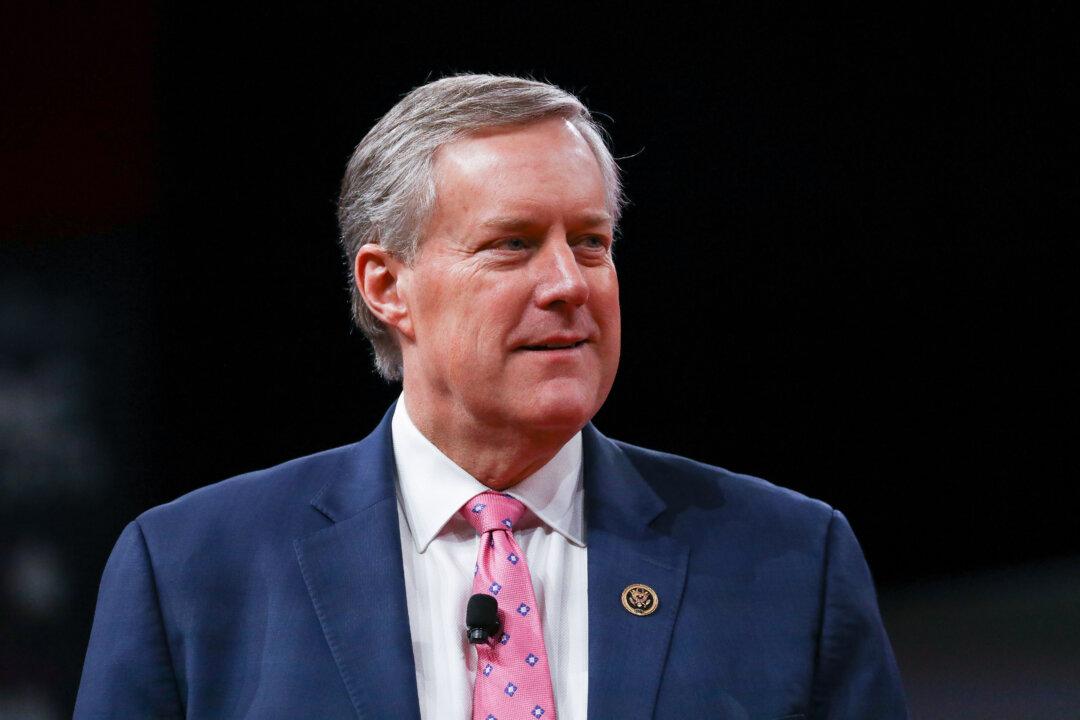Rep. Mark Meadows (R-N.C.) said that he is staying home under self-quarantine after news emerged that he may have interacted with a person who later tested positive for the new coronavirus.
“Rep. Meadows was advised this weekend that he may have come into contact with the CPAC attendee who tested positive for COVID-19, now 12 days ago. Out of an abundance of caution, Meadows received testing which came back negative,” Ben Williamson, Meadows’s spokesman, said in a statement late Monday.




